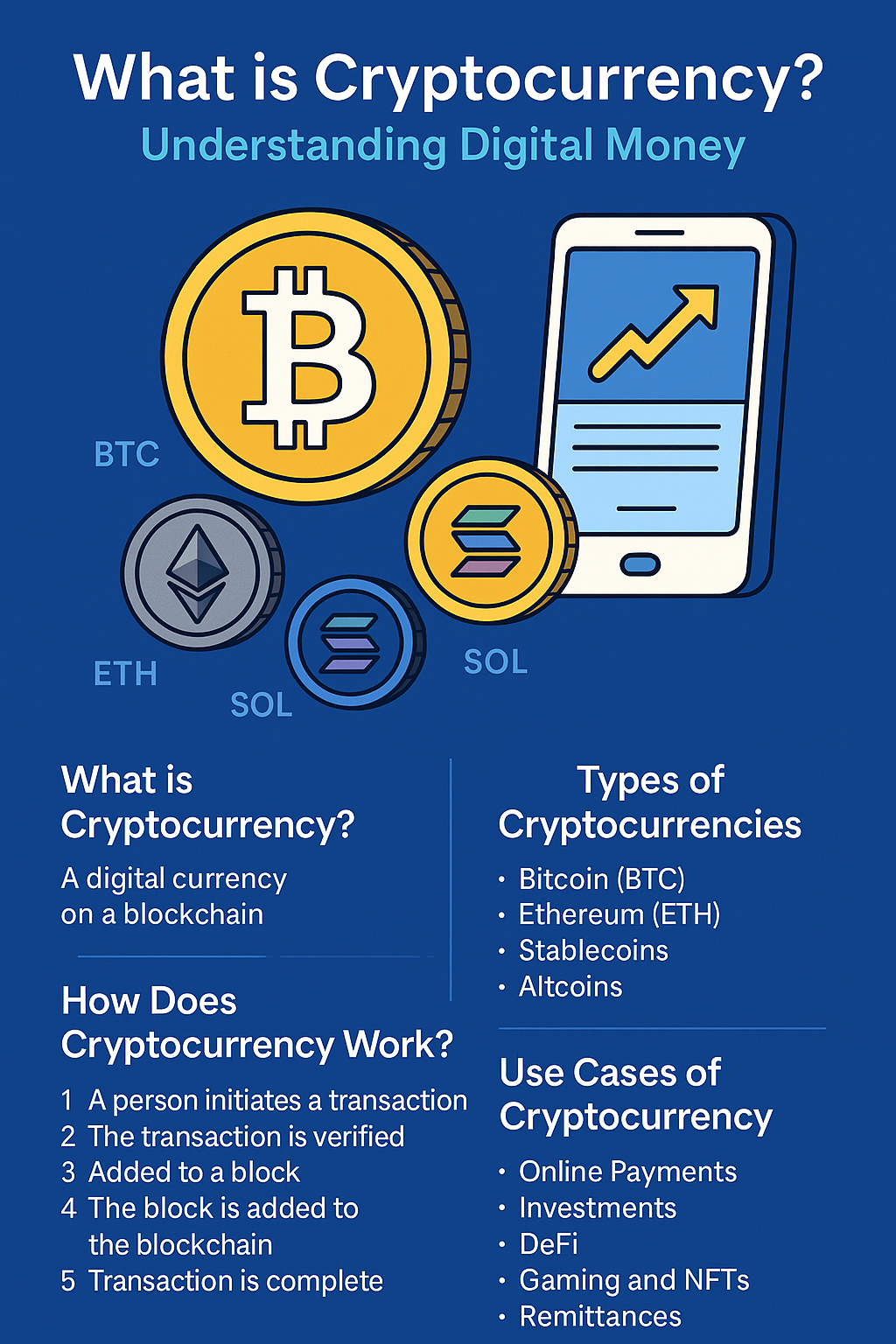What is Cryptocurrency? Understanding Digital Money
A New Era of Decentralized Finance
Cryptocurrency is one of the most talked-about innovations of the 21st century. From Bitcoin to Ethereum and beyond, crypto has changed how we think about money, value, and freedom in the digital world. But what exactly is it, and how does it work?
1. What is Cryptocurrency?
A cryptocurrency is a digital form of money that runs on blockchain technology. Unlike traditional currency issued by governments (fiat), cryptocurrencies are:
- Decentralized – No central authority like a bank controls them.
- Secured by cryptography – Transactions are protected using complex mathematical algorithms.
- Peer-to-peer – People can send and receive value directly, without intermediaries.
Examples include Bitcoin (BTC), Ethereum (ETH), Solana (SOL), and thousands of others.
2. How Does Cryptocurrency Work?
Each transaction made with cryptocurrency is recorded on a blockchain — a public, distributed ledger. Here’s how it works:
- A person initiates a transaction (e.g., sending 1 BTC to someone).
- The transaction is verified by a network of computers (nodes).
- Once verified, it’s added to a block.
- The block is then added to the blockchain permanently.
- The transaction is complete, visible to everyone, and cannot be altered.
3. Why is Crypto Important?
- Financial Freedom: Anyone with internet access can use it.
- Lower Fees: No banks or middlemen charging transaction fees.
- Speed: Transfers happen in minutes, even globally.
- Transparency: All transactions are visible and verifiable.
- Security: Blockchain technology ensures data integrity and reduces fraud.
4. Types of Cryptocurrencies
- Bitcoin (BTC): The first and most popular cryptocurrency, often called digital gold.
- Ethereum (ETH): Known for enabling smart contracts and decentralized applications.
- Stablecoins (USDT, USDC): Pegged to fiat currencies like the US Dollar for stability.
- Altcoins: Thousands of other coins created for different purposes (e.g., Solana, Cardano, Polkadot).
5. Use Cases of Cryptocurrency
- Online Payments: Buy goods and services directly.
- Investments: Crypto trading and holding assets for long-term gain.
- DeFi: Borrowing, lending, and staking without banks.
- Gaming and NFTs: Owning digital assets in virtual worlds.
- Remittances: Sending money across borders with low fees.
Conclusion
Cryptocurrency is much more than a trend — it represents a shift toward decentralized, transparent, and inclusive finance. Whether you’re a casual user or a curious investor, understanding crypto is the first step in engaging with this growing digital economy.
Chill Out with Flutter Bees – The Telegram Mini Game
All this finance talk got your brain buzzing?
Take a break with the Flutter Bees
- Tap and earn in the Clicker Game
- Guard your hive in the Bee Hive Defense Game
- Even by watching, you earn points and progress faster!
It’s the perfect way to relax your mind while enjoying a light game that’s both fun and rewarding.






Post Comment